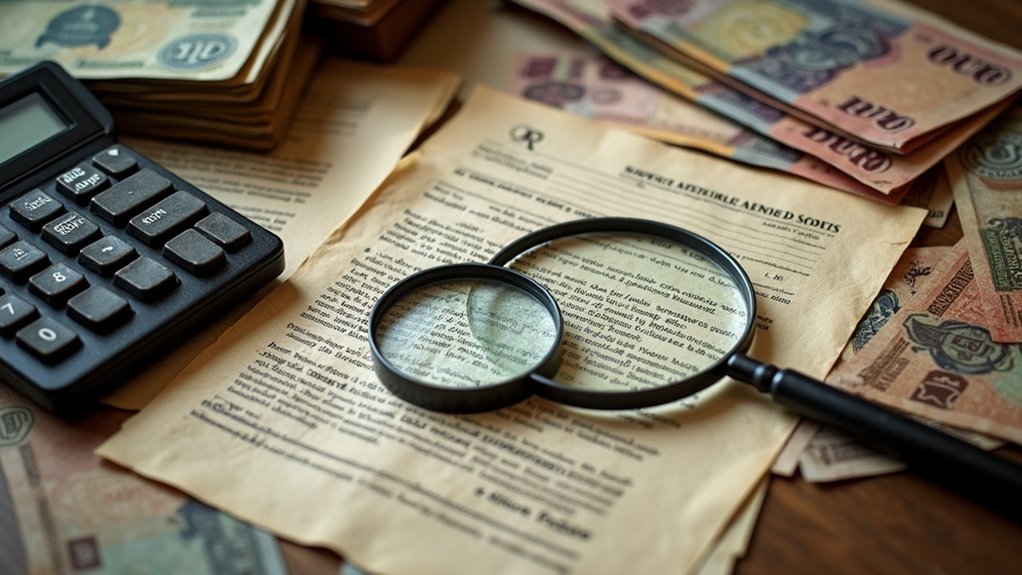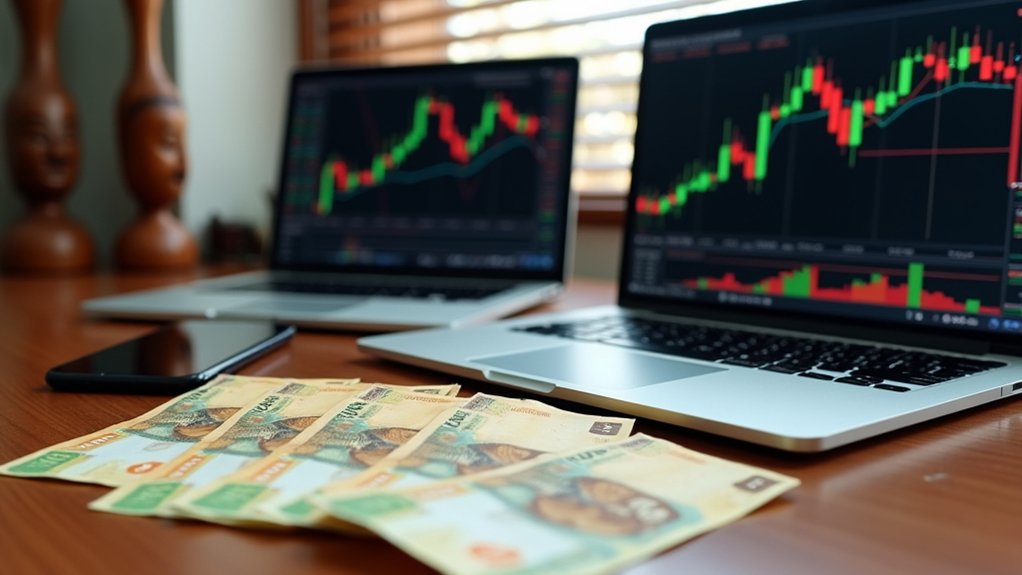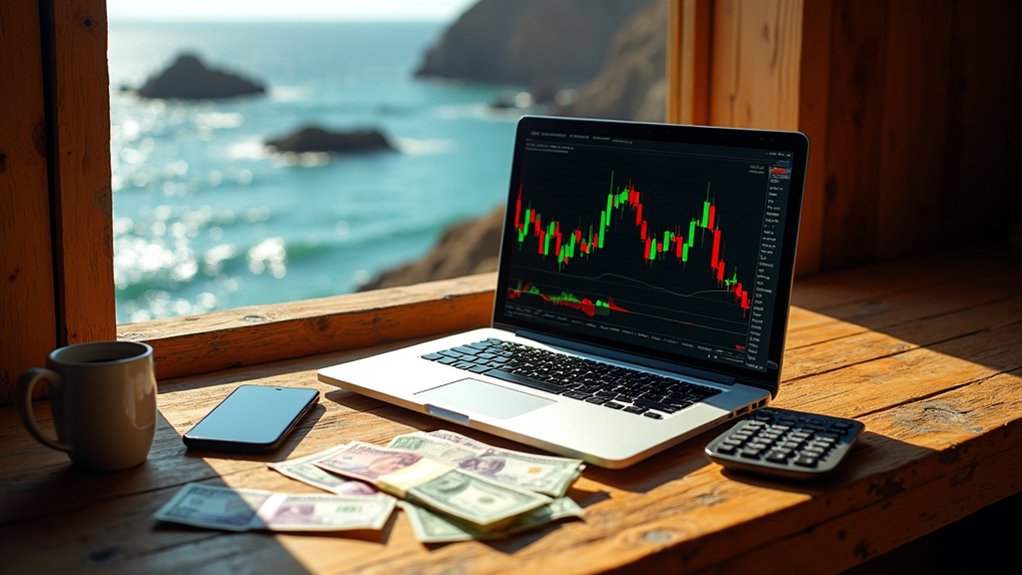Forex trading in the Republic of the Congo operates in a legal gray zone where BEAC regulates banks and official currency operations but nobody specifically oversees the MT4-style retail trading most people actually do. The country uses the Central African CFA franc under CEMAC jurisdiction, not to be confused with the neighboring DRC's completely different regulatory system. Wire transfers above $2,000 need special approval, 70% of the economy runs informally, and 32% of forex fraud now starts on social media where deepfakes and pump-and-dump schemes thrive. The fine print reveals settlement risks, bureaucratic transfer delays, and minimal hedging options in a cash-dominant market where enforcement can't keep pace with scammers exploiting regulatory gaps.
Quick Facts That Matter
- Retail forex trading exists in a legal gray zone with no specific regulations targeting individual MT4-style traders.
- Wire transfers above $2,000 require special approval, creating bureaucratic delays for funding and withdrawing from trading accounts.
- About 32% of forex fraud originates on social media platforms using deepfakes and influencer-coordinated pump-and-dump schemes.
- Cross-border settlement risk means one party may pay but not receive the purchased currency due to time zone differences.
- Low banking penetration (26%) and cash-dominant economy (80% cash pickup) hinder electronic traceability and fraud prevention.
Overview: Forex Trading in Republic of the Congo

Historically, the Republic of the Congo has operated in the shadow of its much larger neighbor—the Democratic Republic of the Congo—but the two nations maintain entirely separate currencies, regulatory frameworks, and economic trajectories. Republic of Congo uses the Central African CFA franc, not the Congolese franc. Different central bank entirely. The facts provided reference DRC's regulatory structure—the Central Bank of Congo in Kinshasa, Congolese franc depreciation, de-dollarization initiatives. None of that applies here. Republic of Congo falls under BEAC jurisdiction, operates within CEMAC monetary union. Completely different ballgame. Wrong country, wrong currency, wrong regulations.
The forex trading landscape remains characterized by regulatory uncertainty, with traders facing limited transparency regarding broker obligations and fund protection mechanisms. While the CFA franc zone in West Africa has institutions like BCEAO and CREPMF providing structured oversight for forex and securities markets, Central African nations operate under different arrangements.
Is Forex Trading Legal in Republic of the Congo?

The regulatory mess described earlier—Central Bank of Congo in Kinshasa, Congolese franc struggles, de-dollarization campaigns—doesn't apply to Republic of Congo.
Different country. Different central bank. Different currency (CFA franc, not Congolese franc). Different regulatory framework entirely.
Republic of Congo operates under completely separate financial systems—distinct central bank, different currency, and independent regulatory structures from its neighboring namesake.
Republic of Congo uses the Central African CFA franc, overseen by BEAC (Bank of Central African States) in Yaoundé, Cameroon. Not Kinshasa.
The legal status of retail forex trading there? Unclear. BEAC regulates banks and official forex operations, sure. But whether individual traders can legally open MT4 accounts and trade EUR/USD from Brazzaville? The regulations don't explicitly address it. Legal gray zone.
The CFA Franc currency operates across both West African (XOF) and Central African (XAF) regions, creating distinct forex trading dynamics in these markets.
Who Regulates Forex Trading in Republic of the Congo?

Nobody really regulates retail forex trading in Republic of the Congo. The Central Bank of Congo (BCC) oversees the official foreign exchange market under Organic Law No. 18/027, sure.
It issues administrative instructions, manages the exchange rate regime, supervises interbank transactions. But here's the thing: those regulations target banks, manual forex operators, commercial transactions.
Administrative Instruction No. 007 governs manual forex activity. Instruction No. 57 handles exchange rate transmission. Instruction No. 43 covers foreign currency accounts. All institutional stuff.
For the average trader clicking buttons on MT4? That regulatory framework simply doesn't address them. Compare this to Egypt's approach, where the Financial Regulatory Authority specifically oversees forex trading activities within the retail market.
How Forex Trading Works in Republic of the Congo

Retail forex trading in Republic of the Congo operates through a CEMAC-wide framework that most traders barely understand.
BEAC runs the show as primary regulatory authority, while DGMC processes authorization requests nobody wants to file.
Wire transfers above $2,000 for individuals need special approval.
Corporate transfers? That threshold jumps to $20,000.
Banks record customer identities for large transactions and keep records for five years minimum.
The whole system coordinates across CEMAC member states with unified standards but zero specific thresholds for routine reporting.
Similar to how NAMFISA oversees currency activities in Namibia, financial authorities in Republic of the Congo maintain strict supervision over forex operations to ensure compliance.
It's regulatory alphabet soup with real consequences.
Best Time to Trade from Republic of the Congo

From midnight to dawn, Congo-based traders face a peculiar geographic disadvantage that nobody wants to admit.
Congo traders sleep through 70% of global forex volume while the London-New York overlap prints money without them.
Sydney session kicks off at 23:00 COT with anemic volume.
Tokyo follows at 01:00 with marginally better liquidity.
The real action? London opens at 09:00 COT, hitting peak solo-session volume.
New York starts at 14:00.
The London-New York overlap from 13:00-17:00 COT concentrates 50-70% of daily volume into four brutal hours.
Dual-session periods can spike movements beyond 70 pips when major news drops.
Understanding how trading session transitions affect price behavior helps Congo traders anticipate volatility shifts throughout their day.
Evening traders (18:00-23:00 COT) catch New York's tail end.
Major pairs like EUR/USD stay liquid constantly.
Exotic currencies? Good luck outside regional hours.
Markets close weekends, obviously.
Payments, Deposits and Withdrawals in Republic of the Congo
Moving money in and out of forex accounts from the Republic of the Congo isn't the streamlined click-and-done affair traders in Frankfurt or Singapore take for granted.
Wire transfers work but drag on for days.
Mobile money handles 26% of transactions, though cash pickup still dominates at 80%.
Platforms like Xoom, WorldRemit, and Wise offer varying exchange rates—meaning identical transfers yield different amounts depending on timing.
Payment gateways including Interswitch and Remita facilitate transactions, while Fusion Markets topped 2025 broker rankings for the region.
Banking access remains limited; only 26% hold accounts.
Xoom, a PayPal service, connects to over 250 million customers in its network and offers mobile wallet deposits that typically arrive in minutes.
Traders should prioritize protecting against fraud when selecting withdrawal methods, as security protocols vary significantly across payment platforms operating in the region.
Taxes, Reporting and Money Rules in Republic of the Congo
Getting money into an account is one headache. Getting it out? That's where the Republic of the Congo's bureaucracy really shines.
Moving money in is difficult enough, but withdrawing funds reveals the full complexity of Congolese financial bureaucracy.
Wire transfers above $2,000 need special authorization from DGMC. Corporate transfers? $20,000 threshold. BEAC monitors everything, and banks keep records for five years minimum. No one mentions a specific reporting threshold, which is convenient.
Exporters can retain 90 percent of proceeds, 100 percent if it's refinancing related. Mining companies get different rules entirely.
Physical currency has limits. Break the rules, face penalties. The system loves paperwork. Traders better love it too.
Cross-border forex transactions carry settlement risk, where a trader might pay out their currency but never receive the purchased currency due to time zone differences and counterparty failure.
Forex Trading Scams and Risks in Republic of the Congo
While bureaucrats in the Republic of the Congo obsess over wire transfer paperwork, scammers operate with impressive efficiency.
About 32% of forex fraud now starts on social media—Facebook, TikTok, Instagram, Telegram.
Deepfake AI impersonates legitimate traders. Influencers coordinate pump-and-dump schemes.
The informal sector represents roughly 70% of the economy, creating regulatory black holes. Weak law enforcement can't keep up. Political instability doesn't help.
Device intelligence systems can cut manual reviews by 20%, and automated scoring drops chargebacks by 45%. Real-time device intelligence tracks multiple accounts from the same device or access through high-risk IP addresses to identify organized fraud rings.
But when cash dominates and money laundering rules lag international standards, fraudsters thrive. The African emerging market environment amplifies currency risk exposure through volatile exchange rates and limited hedging options. The Republic of the Congo remains vulnerable.
Quick Q and A
Can I Trade Forex in Republic of the Congo Using a VPN?
Trading forex in the Republic of the Congo using a VPN exists in a legal gray area with no clear regulations. Traders should exercise caution, as limited regulatory oversight and unclear VPN laws create potential compliance risks and uncertain legal standing.
Do Republic of the Congo Brokers Accept Cryptocurrency Deposits for Forex Trading?
Major international brokers operating in Republic of the Congo, including IC Markets, XM, and Fusion Markets, increasingly accept cryptocurrency deposits through payment processors like BitPay. However, specific crypto deposit availability varies by broker and requires direct verification with individual platforms.
What Happens if My International Broker Suddenly Blocks Republic of the Congo Accounts?
Account holders should immediately contact the broker to clarify closure reasons, request withdrawal procedures, and confirm fund security. Simultaneously, traders must secure transaction records, verify alternative broker options accepting Congolese residents, and consult legal advisors regarding fund recovery.
Are Swap-Free Islamic Forex Accounts Available to Republic of the Congo Traders?
Islamic swap-free accounts are offered by multiple brokers globally, though search results don't explicitly confirm which Congo-accepting brokers provide this option. CWG Markets and other international brokers offer Sharia-compliant accounts, but Congo-specific availability requires direct broker verification.
Can I Transfer Forex Profits to Relatives Abroad From Republic of the Congo?
Yes, forex profits can be transferred to relatives abroad from Republic of Congo through certified commercial banks under CEMAC regulations. Transfers require proper documentation, beneficiary information, and compliance with bank reporting requirements for transactions exceeding $10,000 USD.
The Bottom Line
Forex trading in the Republic of the Congo exists in a regulatory gray zone that most traders navigate blindly. The fine print matters here more than anywhere—withdrawal delays, tax ambiguities, and scam risks aren't hypotheticals. They're Tuesday. International brokers dominate because local oversight barely exists. Traders who ignore account terms, payment restrictions, and reporting requirements learn expensive lessons. The market doesn't care about excuses. Neither do the details everyone skips reading.










